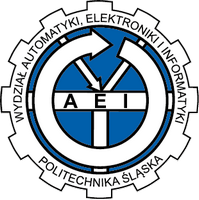Start - BSc – General program description
General program description
Interdisciplinary studies: control, electronic and information engineering
The Faculty of Automatic Control, Electronics and Computer Science offers courses given in English since 1997. In October 2001 a program of full-time studies with all courses given in English, leading to BSc or MSc degrees, was established.
Interdisciplinary studies:
Control, electronic and information engineering
The program of these studies matches the standards of technical universities in European countries. This makes it possible, for students, to participate in exchange programs and spend a semester or two at the foreign universities as part of their study and offer the courses to foreign students within the framework of the Erasmus exchange program. During the first semesters of BSc studies, students obtain a thorough education in mathematics, physics, basics of computer sciences and basic technical sciences: electrical engineering, control theory, electronics, metrology, computer programming, microprocessor systems, databases, computer networks, artificial intelligence and computer vision systems. Attention is paid to solving practical engineering problems and integration of knowledge. The courses facilitate development of team-work and leadership skills. After completing five semesters, students choose a specialization of their interest, with courses structured to expand their skills and knowledge in one of the three main fields that are listed in the title of the interdisciplinary studies.
Alumni are engineers fully prepared to deal with technical problems arising in Automatic Control, IT, electronics and telecommunication with knowledge and practical experience in these fields. For example, they may work as designers or operators of control systems, software or hardware developers, database specialists, measurement specialists, etc.
Following graduation, alumni may enter the job market as highly-demanded professionals or continue their studies at the postgraduate level choosing one from tree specializations. Taking into account increasing shortage of engineers on the European and world job markets, the degree awarded in any of the specializations offered below guarantees finding a rewarding, well-paid job. Actually, the majority of our students are recruited before graduation.
Automatic Control
The MSc program in Automatic Control consists of a comprehensive set of courses providing students with knowledge and skills necessary to design, tune and manage control systems in any field of application, use state-of-the art software supporting Computer Integrated Manufacturing, control industrial robotics systems as well as design autonomous systems and develop software for them. The courses comprise lectures, tutorials, laboratories and projects, with the emphasis on the latter.
In particular, students learn advanced methods of control for continuous and discrete systems, intricacies of system and process engineering, computer and microcontroller-based systems, automation of technological processes, design of autonomous systems, robotics and mobile systems. Skills acquired in these courses provide professional advantage for those working on small- and large scale control systems, from automotive, chemical, biotechnological industry to intelligent buildings. The robotics edge is also of a wide spectrum, from large industrial to small mobile robots. The additional value of the courses is in scientific development of the students, so that they can pursue professional careers in either industry or science.
Alumni are prepared to work as designers of modern control systems used in industry, cars, airplanes, drones, software developers for embedded and integrated systems, sensor networks and computer-aided decision systems. Taking into account the scientific background they gain during their studies, they can also pursue research in R&D company departments and in science.
Informatics
The MSc program in Informatics is made up of courses that give students the knowledge and skills necessary to design advanced computer systems and applications including industrial computer systems and databases. Students acquire knowledge about digital modelling, simulation, optimization and numerical methods which are important in development of specialized engineering software. The courses comprise lectures, tutorials, laboratories and projects, with the emphasis on the latter.
In particular, students advance their programming skills, gain deep understanding of the internal functioning of operating systems and compilers, learn aspects of concurrent programming, principles of computer graphics and vision. Additionally, they acquire skills in construction, maintenance and usage of system software and applications development, building systems and computer networks and designing and administration of databases that are deployed in various environments and operating systems.
Alumni are prepared to work as software developers for standalone and web applications, databases and data warehouses, computer games and mobile applications. They can also get the position as computer engineers, network and system maintainers, project managers. With scientific background they gain during studies, they can work in R&D departments of companies and also in science.
Electronics and Telecommunication
The program is a combination of academic and practical courses and includes key subjects such as: analogue and digital circuits design, computer aided electronic circuits design, programmable logic devices, wireless computer networks, computer system security, radio communication, optoelectronics and microelectronics. The courses comprise lectures, tutorials, laboratories and projects, with the emphasis on the latter.
Students learn various aspects of electronics and system design, hardware and software telecommunication, measurement systems, control and medical equipment. Study program on Electronics and Telecommunication has received an outstanding evaluation by the State Accreditation Committee. are prepared to carry out research and scientific tasks as well as solving engineering problems
Alumni are prepared to carry out research and scientific tasks as well as solving engineering problems arising in electronics and telecommunications. They are prepared to work at the forefront of developing new technologies for industry, including telecommunication, robotics, transport and healthcare.
BSc study:
- Programme for specialization:
- Syllabi
- Course description cards
MSc study:








